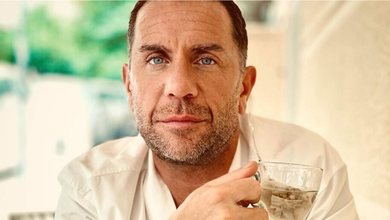
The time young people spend on social media has more than doubled since 2010, reaching about three hours a day. According to the World Health Organization, more than 1 in 10 adolescents in 2022 showed signs of problematic use and addiction to social media, including difficulty controlling use and withdrawal symptoms.
“Everyone knows it’s addictive,” said Hanna Kuźmitowicz, a high school student from Poland who worked with the Polish EU presidency on the topic. “I know the risks, the benefits,” she told Politico. “I use it again.”
New restrictions and measures
With the encouragement of public health experts, European governments are exploring new ways to wean young people off their phones through age-verification policies, public awareness campaigns and even social media bans. Each country is free to set its own restrictions: President Emmanuel Macron is calling for a complete ban on those under 15 in France, while Denmark, Greece, Spain, Italy, the Netherlands and others have embraced new rules. Tech companies, on the other hand, are implementing age-based content restrictions, feature disablements and privacy measures, but critics say they are not enough.
Arguments for and against
Some experts say social media isn’t just bad and can help create social connections. But growing evidence links it to depression, sleep disorders and higher substance use. “There needs to be regulation” and “a stand-up for tech companies that are harming young people,” said Kadri Soova, director of Mental Health Europe.
Scandals in recent years have shown that companies haven’t always had a “safety first” approach. In 2021, former Meta employee Frances Haugen uncovered documents showing that the company knew the harm it was causing to teens but failed to take action. Experts say the platforms are intentionally designed to create addiction, comparing the phenomenon to gambling, smoking, and alcohol.
Legal framework and age
The main European law is the Digital Services Act (DSA), which requires platforms to take measures to protect the privacy and safety of minors. Facebook, Instagram and TikTok are under investigation for violating the DSA rules. However, the obligations are unclear and the Commission has drawn up new guidelines: banning suggestions based on minors’ browsing history, disabling features such as “streaks” or “read receipts”, and privacy by default.
A major problem remains age verification. According to the GDPR, children under 13 cannot consent to the use of data, but in practice this is easily circumvented. Reports show that 94% of Danish children have social media accounts before they turn 13. The political debate has shifted towards mandatory age checks, with platforms and operating system manufacturers (Google and Apple) blaming each other.
Does the ban work?
Many are skeptical that a complete ban would be effective. WHO experts suggest that age verification, parental tools and digital education programs could yield better results than bans. Even some teens admit that there will always be loopholes in bans. EU health ministers say there is not enough evidence to support a total ban. “How can we enforce it?” asked Cyprus’ Health Minister, Michael Damianos.
“Banning social media is really a step into the unknown,” said Malta’s Health Minister, Jo Etienne Abela. “Such a policy is not supported by evidence. But, on the other hand … we know there is a problem. Should the lack of evidence tie our hands and make us do nothing?”/ Politico.eu






















